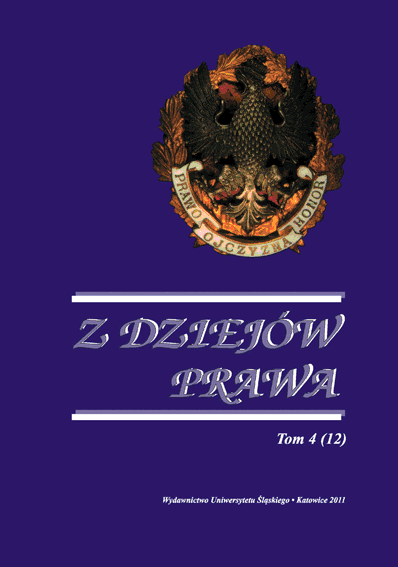Demokratyczne Niemcy w projekcie Konstytucji Socjalistycznej Partii Jedności Niemiec z 1946 roku
A democratic Germany in the project of a Socialist Unity Party of Germany from 1946
Author(s): Michał BożekSubject(s): Law, Constitution, Jurisprudence
Published by: Wydawnictwo Uniwersytetu Śląskiego
Summary/Abstract: The first organized political grouping in a postwar Germany was a Communist Party of Germany. Its formation was proclaimed in June 1945 in Berlin. It joined a Socio-Democratic Party of Germany from the Soviet occupational zone and formed a Socialist Unity Party of Germany (SED) in April 1946. As early as in its first manifesto document the leaders of the Communist Party of Germany considered the formation of the national system based on a democratic-antifascist basis and progressive social reforms as one of the conditions of the restoration of the German country and nation. Such a system should take on the form of a parliamentary republic in which all democratic laws and freedom of a nation would be respected. The very assumptions later became a basis for the project of constitution for a postwar republic of Germany. It was announced by the SED in November 1946 and entitled the Constitution Project of the Democratic Republic of Germany. Skipping a few elements of a clearly ideological provenience, the SED constitution project was deeply “saturated” with the idea of democracy which was to become a foundation of the order of the system of a postwar Germany. The SED project made the idea of democracy a secular religion which the German society was to accept after years of believing in a dogma of a strong country because of an authoritative power. The role of the country was to be measured by means of the strength of a democratic society. It is proved not only by a consistently outlined project of the system of the government meeting as a form of the system protecting the rights of the society most efficiently. A far-reaching subjectivisation of the society and its inclusion in a political life through the mechanisms of a direct democracy is in favour of such a hypothesis. The system conception presented in the above project was popular among those political and social forces which were subject to an almost frontal criticism by the SED. Meanwhile its constitutional project was treated as an important reference point in a discussion on a shape and nature of the system of the restoration of the German nation despite being usually inappropriate for such a nation. Not to mention a formal name, the SED project did not have anything in common with a later constitution of a Democratic Republic of Germany from October 1949. Both documents based on totally different assumptions and expressed different system models.
Journal: Z Dziejów Prawa
- Issue Year: 12/2011
- Issue No: 4
- Page Range: 203-216
- Page Count: 14
- Language: Polish

